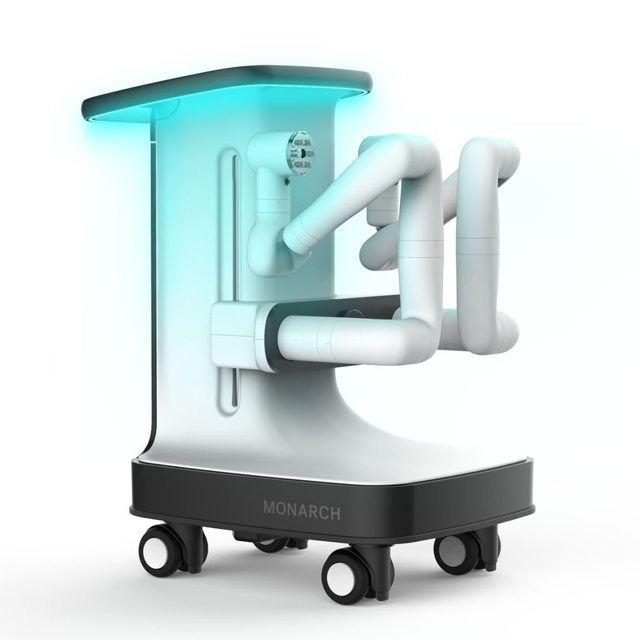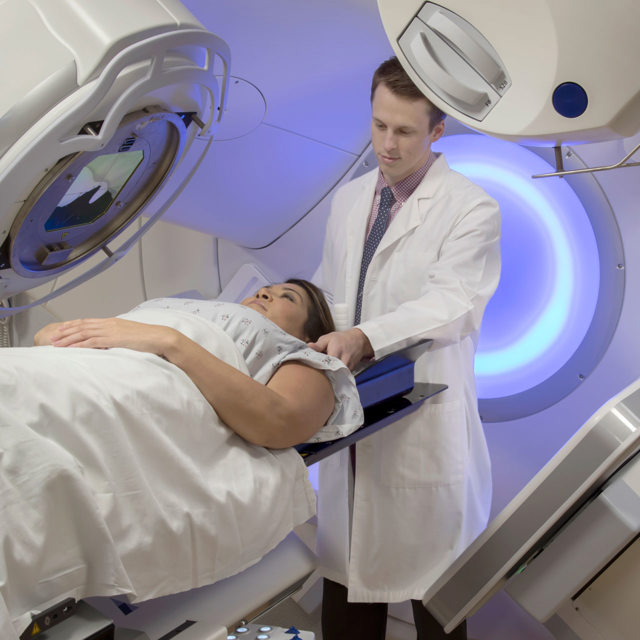Lung Cancer Screening and Lung Cancer Treatment Extends Lives
Lung Cancer
Early detection of lung cancer through lung cancer screenings and new treatments are offering hope and dramatically improving the survival rate for people throughout Pennsylvania. In Central Pennsylvania, you don’t have to travel far from home to get the benefit of these advancements. Penn Highlands offers the latest technology and expertise to diagnose and treat lung cancer close to home.
Lung Cancer Screening Tests
Penn Highlands offers several technologically advanced tests to help our physicians diagnose lung cancer as early as possible:
Low-dose CT lung cancer screening: Penn Highlands Healthcare is the first healthcare facility in Central Pennsylvania to offer low-dose CT lung cancer screenings for people at high risk for the disease. Low-dose CT scans use about a quarter of the radiation of conventional CT scans to detect lesions that could be cancerous. This lung cancer screening detects much smaller lesions than traditional X-ray, meaning cancer is caught earlier when it is more treatable.
Robotic bronchoscopy: In early stage lung cancer, suspicious lung nodules tend to be very small and deep in the periphery of the lung. This makes it difficult for physicians to safely and reliably diagnose them. Although there are a variety of diagnostic options currently available to biopsy lung nodules, all have limitations in accuracy, safety or invasiveness. Penn Highlands physicians now have access to The Monarch™ Platform, the first robotic platform for diagnostic and therapeutic bronchoscopic procedures. The Monarch, featuring a bendable bronchoscope with a tiny camera, gives our pulmonologists greater visualization of and access to your airways. Using robotic controls to navigate the small tubes in the lungs, your physician can extract even hard-to-reach tissue samples for biopsy.
Lung biopsy with SPiN Access Catheter™: Physicians are challenged with trying to use traditional bronchoscopy to biopsy small lung nodules, which can be as small as the size of a pea. These nodules also tend to move as patients breathe, making it even more difficult to access. Penn Highlands became the first in the region to utilize a new computer navigated catheter system, called SPiN Access Catheter, to reach these hard-to-reach nodules. The system uses 3D mapping that adjusts for movement so that physicians can reach the nodule to remove a tiny tissue sample to test for lung cancer. Read more.
Learn more about Pulmonary Care services at Penn Highlands.
Who Should be Screened for Lung Cancer?
Not everyone needs to be screened for lung cancer. In fact, you must meet certain criteria to be eligible for screening with low-dose CT scan. In general, the criteria for lung cancer screening is:
- Age 55-74
- Current smoker or quit within past 15 years
- Smoking history of 30 “pack years” or more (ie a pack a day for 30 years or two packs a day for 15 years)
In addition, patients with a family history of cancer or people exposed to second-hand smoke or environmental toxins, such as chemicals at work, may also be recommended for screening. Everybody should discuss cancer screenings with their primary care provider.
Learn more about lung cancer screening at Penn Highlands.
Lung Cancer Treatment Options
Penn Highlands offers the latest lung cancer treatment options, including some therapies still in clinical trials. The type of treatment you have will depend on whether you have small cell lung cancer or non-small cell lung cancer, the stage of your cancer, and your general health. Your Penn Highlands medical oncologist will take this information into consideration when agreeing on a treatment plan.
Small cell lung cancer is typically treated with chemotherapy and radiation therapy. Non-small cell lung cancer may be treated with surgery, chemotherapy, radiation therapy, targeted therapy, or a combination.




